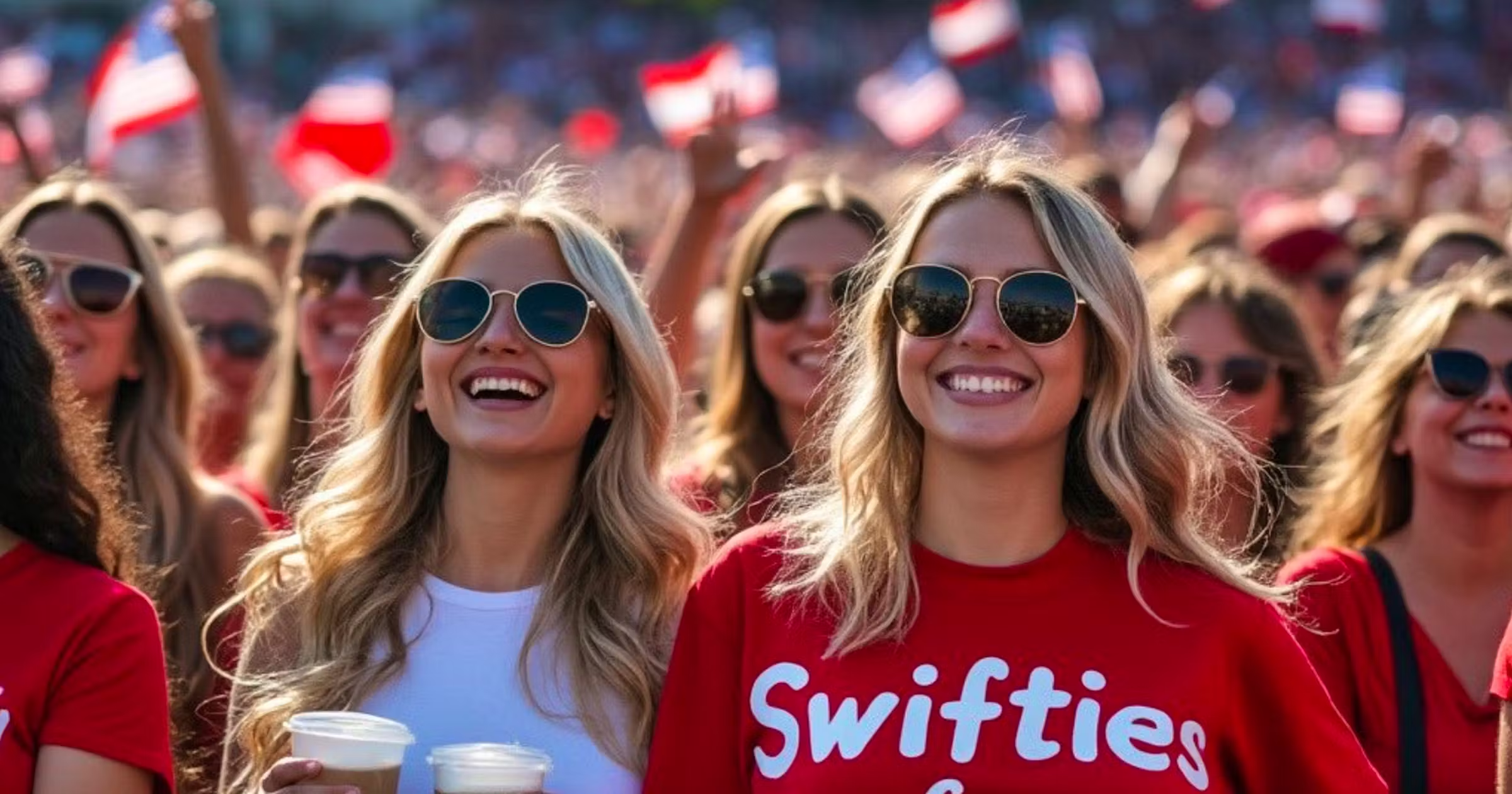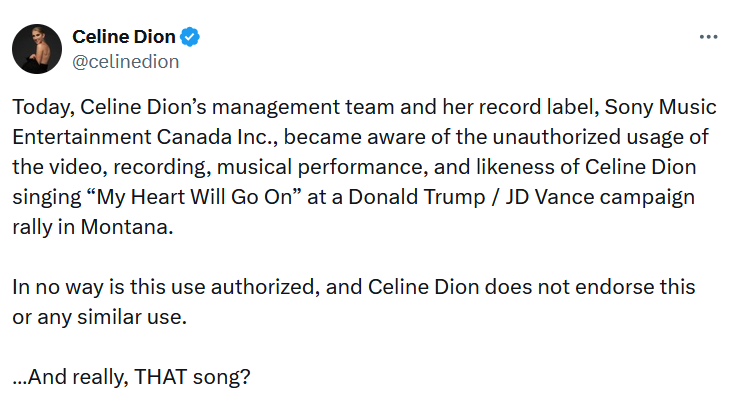‘They’re playing our song’
PRESIDENTIAL election season in the US is spawning its regular mass of breaches of authors' and performers' rights. ‘They’re playing our song - and not in a good way,’ musicians lament, reaching a peak every four years.

An artificially-generated "Swifties for Trump" image: see below
The first case that came to our attention was the estate of Isaac Hayes threatening to sue on 11 August over use of his song Hold On (I'm coming) by the Trump campaign. Their lawyers asked for $3,000,000 as "a very discounted fee for... multiple uses" over the past two years. Having had no response by the deadline of 16 August, the family filed suit. If the abuses are found to be "wilful" the family is due $150,000 for each unauthorised use. On 3 September they won an injunction against further use of Isaac's work at rallies - but it did not mention videos.
Celine Dion Tweets
Also on 11 August, representatives of Celine Dion announced that "usage of the video, recording, musical performance, and likeness of Celine Dion singing My heart will go on at a Donald Trump / JD Vance campaign rally in Montana [was] in no way... authorized, and Celine Dion does not endorse this or any similar use." We're not yet sure whether they're suing. They have deployed snark: "...And really, THAT song?" My heart will go on is the theme song of the 1997 film Titanic, famously not about getting to your desired destination.
The Foo Fighters had a terser response to @WUTangKids asking whether they let Trump use My hero to welcome new running-mate RFK Jr on stage: "No".
Half-rights
This reticence may be explained by the difficulty of pursuing infringers in the US. When claiming for breach of the economic right to license the use of a work - or not - the infringer can always claim "fair use". Whereas in other jurisdictions the conditions of "fair dealing" under which use without a licence is permitted are fairly clearly set out, the US "fair use" doctrine sets out vague principles and leaves it to the court in each case. This is expensive.
In other jurisdictions there are moral rights, including a right to object to use that is "prejudicial to the honour or reputation" of an author or performer. These rights may be hard to enforce in UK law: they do not exist in US law, except for works of visual art in signed and numbered editions of 250 or fewer.
A source close to Beyoncé told Rolling Stone that the Trump campaign did not receive permission to use her song Freedom - which she had licensed to the campaign for his opponent Kamala Harris. The only action that we know Beyoncé's people have yet taken is to issue a "cease and desist" letter. Any breach of her rights after that would, on the face of it, be wilful and attract extra penalties.
All these breaches of artists' rights are designed to give the impression of endorsement. If, that is, they're designed at all: how stupid does a Trump staffer have to be to select Sinéad O'Connor's Nothing compares to you?
Artificial stupidity
Inevitably, we now face the next level: endorsements generated by so-called "Artificial Intelligence". In mid-August Hello! reported "a slew of AI generated images suggesting that [Taylor Swift] had endorsed him in the 2024 race" - to which Trump responded on Twitter (currently trading as "X") "I accept."
Salon reports a new legal twist for this new abuse. It quotes Harvard Law School professor Rebecca Tushnet suggesting that a law of the State of Tennessee aiming to protect a "right of personality" could be used against this false endorsement. On the other hand, she notes that success depends on the images being deliberately designed to deceive - and "if Donald Trump is not someone you can take seriously, then maybe he's not fooling anyone."
1 September 2024: And they keep coming. We are not going to try to record every case.
Will the Trump campaign meet its Waterloo over use of ABBA songs? On 29 August the Swedish combo's lawyers wrote: "Together with the members of ABBA, we have discovered that videos have been released where ABBA's music has been used at Trump events, and we have therefore requested that such use be immediately removed and taken down."
In the US, rally organisers can pay for a Political Entities License from collecting society BMI. They are not covered by any licence that the venues they use may hold. Artists can tell BMI that their works are excluded from the licence: it is up to the organiser to check whether a track is on the excluded list. The licence covers only the playing of a track during the event: hence, perhaps, ABBA's lawyers making pointed reference to videos being distributed afterwards.
And then the Trump campaign used Dolly Parton's Joleen. You don't mess with Dolly, nor with her fans. One person wrote: "we ride at dawn."
 'Artificial Intelligence' our coverage to date
'Artificial Intelligence' our coverage to date
![[Freelance]](../gif/fl3H.png)
